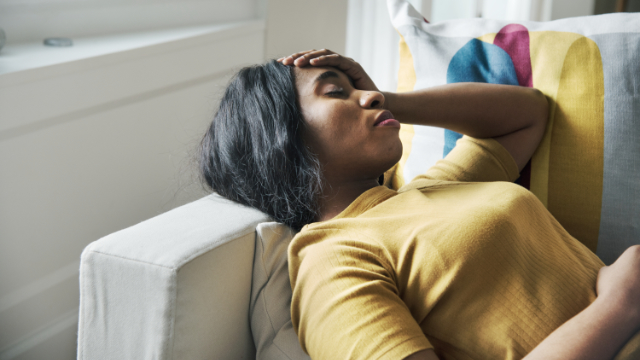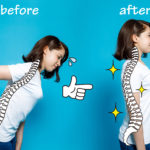Health Blog
Sleep Patterns, Low Back Pain And Burnout Are All Interrelated

We spend about one–third of our lives sleeping, and our habits in the night can have a big impact on how we feel during the day. Sufficient sleep is an essential component of good overall health, as getting between 7–9 hours of sleep every night is associated with countless benefits, including lower stress levels, a reduced risk for many chronic disorders, improved memory and cognitive function, and possibly even a longer lifespan.
The implications of not getting enough sleep are widespread, and new associations continued to be identified regularly through research. Among these recently discovered associations are burnout and low back pain, as an increasing number of studies have suggested that poor sleeping patterns may increase the likelihood of both issues. In essence, sleep debt that accumulates from poor nighttime habits increases emotional exhaustion, which can in turn lead to an increase in muscle tension as part of the stress response, and this is linked with low back pain. However, there is a lack of research studying low back pain and burnout over time to disentangle the relationship between the two issues and determine the role of sleep problems in preceding them.
Researchers track more than 400 patients for three years
Therefore, a study was conducted to investigate the connection between sleeping habits, burnout, and low back pain in healthy individuals. Researchers screened 1,833 individuals to determine if they were eligible and only included those who did not report low back pain and/or burnout, which resulted in a final sample of 405 participants. At the start of the study, these individuals were asked to assess the quality of their sleep by answering the following questions:
- “In the last four weeks, how well did you sleep?”
- “Did your sleep problems have any effects on your tiredness during the day?”
Low back pain was similarly assessed with a series of questions about the presence, intensity, and location of any back pain, while burnout was assessed with questions that addressed the three dimensions of burnout: emotional exhaustion, depersonalization, and reduced performance. Participants then went about their lives and were assessed with the same questions about sleep quality, low back pain, and burnout 24 months and 36 months later, and their responses were analyzed at these follow–ups to tease out any connections between the three factors of interest.
Results showed that there were positive associations between all three factors, as having sleep problems at the start of the study was predictive of both low back pain and burnout in the future. In addition, participants who reported low back pain at the 24–month follow–up were more likely to report burnout at 36–month follow–up. Lastly, sleep problems were found to be a stronger risk factor for burnout than for low back pain, and this link was strongest in women 45 and older.
Although this study does not prove that sleep problems directly cause low back pain or burnout, it suggests that low back pain and burnout are more likely to occur in individuals who don’t regularly get enough sleep. As such, these findings serve as additional evidence that sleeping habits have widespread implications on many other areas of our health over time. We therefore encourage you to prioritize your sleep and aim to get at least 7 hours per night, as often as you can. And if you’re interested in learning some tips to help improve your sleeping habits, our physical therapists can help. Contact us for more information.
June 7, 2023
Back to Health BlogHEALTH BLOG
- A Personalized Physical Therapy Program Can Assist with Whiplash
- Why Older Adults Should Incorporate an Exercise Program
- After an Achilles Injury, Physical Therapists Can Help with Recovery
- AI Can Answer Questions But It’s Best to See a Physical Therapist
- Physical Therapy Can Help With Symptoms of Wryneck
- Reduce the Risk of Pickleball Fractures By Taking Proper Precautions
- Physical Activity May Slow the Progression of Parkinson's Disease
- Too Much Salt in Your Diet? Learn the Dangers of High Sodium Intake
- Suffer From Lower Back Pain? Might Be Time to Take A Break
- The Road to Recovery: Preventing Re-Injury After ACL Surgery
RECENT ARTICLES

- 11 Possible Reasons Your Back HurtsJune 22, 2020

- What Conditions Can a Chiropractor Treat?May 25, 2020

- A Simple Guide to Better PostureApril 30, 2020

- Is Acupuncture Right for Me When I’m Afraid of Needles?March 30, 2020

- Stretching Done Right — How and When to StretchFebruary 26, 2020

